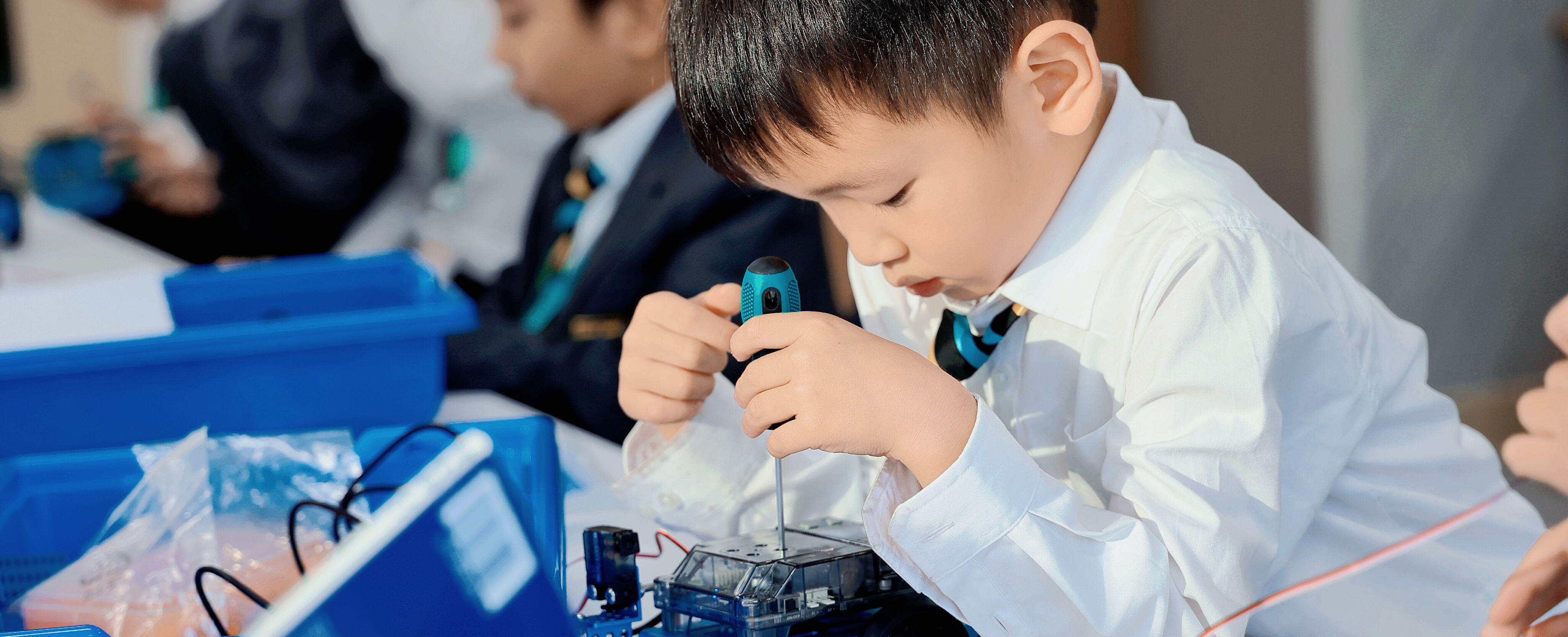
Modern technology has given us instant access to an unprecedented amount of information. Under certain circumstances, this has obvious utility, but when it comes to education we must not fall into the trap of confusing information with knowledge. Acquiring information is not the same thing as deep learning, and if we are not careful, the former can have a negative impact on the latter. As educators, how can we help children lay the foundations for deep learning in early childhood? How can we encourage children to remain focused in the face of endless distractions and teach them to separate the signal from the noise?
Improving children's involvement is the key. At Hiba Academy Nantong, one of the ways we cultivate children’s involvement is through project-based learning (PBL). This is a teaching method in which pupils gain knowledge and develop skills by working for an extended period of time investigating a real-world question or problem. The project then culminates in a presentation of what they learned.
In the process, they learn essential skills like critical thinking, problem-solving, collaboration and communication. They cultivate higher-order thinking skills and learn to work as a team with their classmates. They need to use higher-order thinking skills and learn to work as a team. As a result, they do not just memorise and regurgitate facts and figures. Rather, they process and internalise the subject matter.
Pupils are also more engaged with they feel like they are stakeholders in their own education. Our teachers will, therefore, observe what energises the children and develop lessons around it. For instance, if pupils demonstrate a curiosity about plant life or insects they discover in our outdoor play area, this presents a perfect opportunity to teach them about the natural world. Perhaps one of them notices an aeroplane flying overhead. This could lead to lessons on basic principles of aviation, physics or engineering. We want all Hiba pupils to recognise that they are surrounded by opportunities to learn something new.
If pupils feel truly invested in their own education they will become fully engaged learners. By building these habits early on, our pupils will learn to take personal responsibility for their education. They will be able to distinguish knowledge from information and orient their educational enquiries accordingly. And this will have powerful knock-on effects long after they graduate from Hiba Academy Nantong.
Contact Us
Contacts:Sammi Gu
Hotline:0513-6807 8806
Telephone:177 1485 5368
Contacts:Jennifer Gu
Hotline:0513-6807 8807
Telephone:177 1485 4369
Email:admissions.hsn@huilieducation.cn
Website:nantong.hibaacademy.org.cn
School Address:
66 Haide Road, Su-Xi-Tong Science and Technology Industrial Park, Nantong, Jiangsu